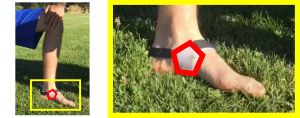I recently caught up with Patrick Scheufler who was a player on the inaugural iSoccerStar.com reality soccer show (I met him through a good friend of mine). The show followed a team of hand-selected U.S. players who traveled to Montenegro and Albania to play local teams in hopes that some of them would attract the attention of some European clubs and sign those selected players to a professional contract.
This year, the program is back for a third year. This program’s primary goal is to showcase talented U.S. soccer players to Europeans clubs on European soil. Patrick is now a scout, talent locator, and partner with E.D. United which is the company behind the program. He told me that they are holding tryouts across the U.S. this spring to find the next group of players that will be part of this year’s team. For more information, visit One Shot One Dream.
This got me thinking about what it takes to play soccer after high school. Athletic ability is certainly important. The best U.S. soccer players will either sign with a European or other foreign club or accept a full ride scholarship to a top-rated college or university of their choice. For the many thousands of players who are one level below the first group, college will be their main option. For these college-bound players, however, there is something even more important than soccer ability. It is academic ability and achievement.
Most university and college football programs can offer upwards of 20 full-ride scholarships a year. As result, up to 80 football players on a team are playing with a full scholarship. College soccer is different. Oftentimes, these programs will only have a few full scholarships they can offer. What coaches will often do is break those scholarships in half, thirds, or quarters in order to attract as many players as possible.
In talking with some high school coaches, I’ve learned that university and college coaches would rather recruit and sign an above average player with a 3.5 – 4.0 grade-point-average (GPA) than a superstar with a 2.5 – 3.0 GPA. These coaches want to be guaranteed that the players they sign will be able to handle the rigors and obligations of being a student-athlete. The best barometric indicator to predict this success is good grades. In addition, if coaches can attract players with good grades (or other unique talents), it makes it much easier for them to go to the college recruiting administrators and seek partial academic (or other) scholarships to make up the difference.
My advice to players who wish to play competitive soccer past high school? Pay as much if not more attention on your grades as you do on soccer. Only a small percentage of high school players will play college soccer. Of those fortunate enough to player college soccer, only a handful will have a soccer-playing career. You will need something to fall back on and good grades and academic ability are a smart back-up plan.
